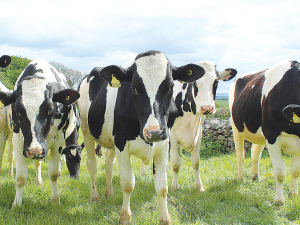Green no more?
OPINION: Your old mate has long dismissed the Greens as wooden bicycle enthusiasts with their heads in the clouds, but it looks like the ‘new Greens’ may actually be hard-nosed pragmatists when it comes to following voters.
 The methane narrative is an ideal tool to make natural, nutritious food unaffordable and unavailable to ordinary people.
The methane narrative is an ideal tool to make natural, nutritious food unaffordable and unavailable to ordinary people.
OPINION: We are endlessly told that livestock are responsible for half of New Zealand's total emissions.
Despite research showing the warming impact of livestock methane is so small it cannot be measured; the widespread perception remains that our livestock are dangerously warming the planet.
So where does this belief come from?
Ask our industry leaders or processors how much warming our livestock cause, and they’ll often quietly admit: “not much.” Press them further - Then why do we need to act - and the reply is always the same: trade pressures or customer expectations, usually meaning supermarket buyers seeking to meet their Scope 3 emissions targets. Ask why they don’t push back, and the excuses roll in: “It’s too hard” or “It would cost too much.”
One of these technologies received a funding boost back in May. It involves daily feeding— completely impractical for New Zealand’s free-trange, grass-fed systems. In other words, it would hand our competitors an advantage based on solving a non-problem. A monthly delivery version is in development, which would mean wrestling large cows 12 times a year. Are any farmers going to buy into this nightmare?
Even if they manage a 6-month version, each 30-month steer would need four doses, its mother two. At $20 a capsule— an estimate not denied by officials—that’s $120 per steer, before on farm costs. They claim it might improve productivity by 5%. A 300 kg steer would need to fetch $8/kg just to cover the capsule cost, never mind everything else. The only guaranteed result? More food inflation, already a growing crisis.
The question no one has answered is this: how can we use these synthetic interventions without compromising the integrity of our worldleading, natural, grassfed product? At least one processor won’t accept cattle for a premium brand if they’ve grazed on oat crops that have begun to head—because that counts as grain-fed. So how will consumers respond to chemically dosed animals?
We already know. Look at Europe’s backlash against Bovaer. Consumers aren’t demanding methane cuts, despite what the hysterical media say. So where are these ‘customer demands’ really coming from?
The answer? The global elite.
Let’s step back. To bring in a One World Government, you need to control three things: money, people, and food. The money supply is already in global hands. The COVID-era showed just how easily people can be controlled. That leaves the food chain.
This methane narrative is an ideal tool to make natural, nutritious food unaffordable and unavailable to ordinary people.
There is no science in this methane reduction campaign. It’s 100% politics, —part of a long-term agenda to consolidate global value.
If you value your land, your freedom and your future, then you must stand up to our industry organisations, our processors and banks and demand they stop giving into political correctness while our industry, our nation and the farming communities that underpin them slowly die.
Neil Henderson is a founding member of Methane Science Accord.
Changed logos on shirts otherwise it will be business as usual when Fonterra’s consumer and related businesses are expected to change hands next month.
Reflecting on the past year, Horticulture New Zealand chief executive Kate Scott says there has been a lot to celebrate.
Ministry for Primary Industries (MPI) Director General Ray Smith is giving a big shout-out to the horticulture sector, especially kiwifruit.
Early forecasts for New Zealand's apples and pears point to a standout season marked by exceptional fruit quality and high pack-out rates.
Tickets are now available for Beef + Lamb New Zealand’s (B+LNZ) Out the Gate, returning from 19-21 May 2026 at Te Pae, Christchurch.
Dairy Women's Network (DWN) is welcoming AgriHealth as a new partner.
OPINION: Fonterra may be on the verge of selling its consumer business in New Zealand, but the co-operative is not…
OPINION: What does the birth rate in China have to do with stock trading? Just ask a2 Milk Company.